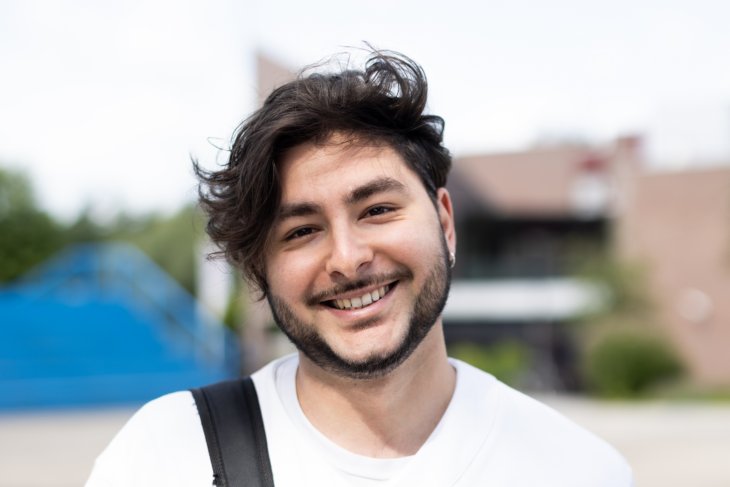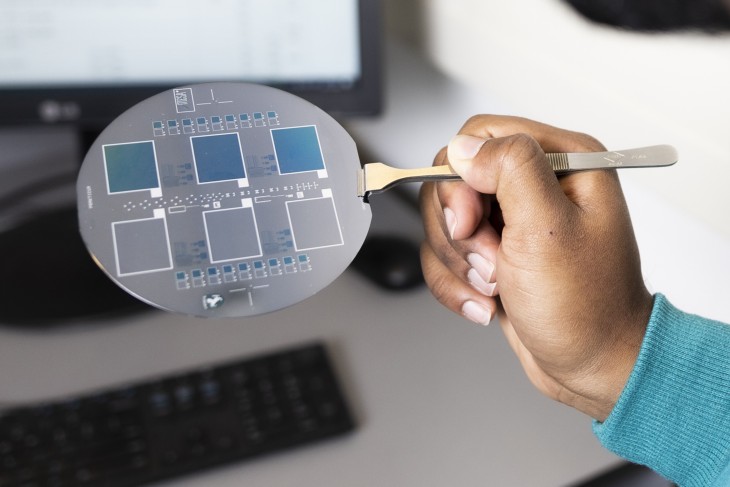“During my bachelor’s degree in Physics back in Athens, I realised that while I loved the theory, I wanted to study something more practical. I was curious about designing circuits and automated systems and dreamed of launching a drone business. So, when it was time to look for a master’s degree, I started an extensive online search: which university would be the best for me?
Even though universities in Germany and France caught my attention, I chose the Netherlands, specifically the University of Twente, because I read about its reputation in engineering and entrepreneurial focus, which aligned with my aspirations.
Eleven specialisations
I opted for the Master’s in Electrical Engineering and the specialisation in Robotics and Mechatronics since there wasn’t a Master’s in Robotics at the University of Twente at the time, while now you can study Robotics. What’s unique about the Master’s in Electrical Engineering is that it offers 11 different specialisations, so you can tailor your studies to what excites you the most, whether it’s integrated circuit designs, wireless communication, or energy systems.
Honestly, I feel lucky because as a student I have access to high-tech facilities like the Robotics and Mechatronics (RAM) lab, which has awesome equipment, such as 3D printers for design tests, robotic arms, and sensors that collect real-time data.
Hands-on learning
I love the practical assignments as I gain a real sense of how the theory applies to actual engineering challenges. For example, in one assignment, my project group created a digital version of an industrial robot. We used computer simulations to understand how the arm would move, which was super useful for learning to design and simulate robotic systems.
One of the most exciting and challenging projects for me was designing software for a robotic camera that could track a phone's flashlight. This skill—making a robot follow a moving target like a light or sound—is crucial for many robotic applications. For example, it’s essential for drones that need to track and follow specific objects, like a search-and-rescue drone locating a signal. Or think of security robots that need to follow and monitor activities in real time. The project was so insightful! I learned to design a robotic system that could respond to real-world input.
Another project I'm excited about is my thesis, where I'm designing a drone that can perform tasks inside a small room, for example, to measure the walls. It's a tough challenge because the space is tight, so I have to carefully think about the design of the drone and how it will move and function in such a confined area. I'm working on simulations to make sure it can do the job right, even in these tricky conditions.
Career plans
After graduation, I’d like to find a job in the robotics domain, particularly focused on drones. I’m fascinated by the potential of drones in industries like maintenance inspection of aeroplanes and ships.
It would be amazing to start a drone business one day: I got inspired during my internship at a start-up that specialises in contact inspection of aeroplanes using drones. However, before launching a drone start-up, I want to gain more experience in the field. I feel this master’s programme has equipped me with the necessary skills and knowledge to succeed in either career path.”




